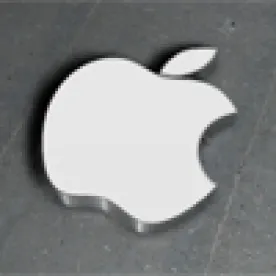On June 29, 2020, the Supreme People’s Court of China made a final decision in favor of the “Little i Robot” patent (Patent # ZL200410053749.9) owned by Shanghai Xiaoi Robot Technology Ltd. (上海智臻智能网络科技公司) (“Xiaoi”). The Supreme People’s reversed the invalidity decision of Beijing High Court, and maintained the validity decision of Beijing First Intermediate Court. Apple Computer Trading Shanghai Ltd. (“Apple”) had been challenging the validity of the patent in response to a lawsuit filed by Xiaoi against Apple.
On July 2, 2020, the China National Intellectual Property Administration (CNIPA) (previously the State Intellectual Property Office or SIPO) issued a notice of conclusion of the invalidation proceedings. The CNIPA declared that the administrative litigation lasting for many years on this patent was closed and concluded that the patent remains valid.
Xiaoi is likely to resume an infringement lawsuit against Apple for accused patent infringement by Apple’s Siri application. The infringement lawsuit was originally filed in the Shanghai First Intermediate Court back in 2012 and was suspended due to the invalidity decision of Beijing High Court against the patent in 2016.
Key issues:
-
The “Little i Robot” patent (directed to a chatbot), has huge business value and is widely utilized in many fields.
-
The “Little i Robot” can intelligently perform some AI functions such as voice conversation, map query, and air ticket query, for example.
-
The administrative proceedings and litigations involving the CNIPA, Beijing First Intermediate Court, Beijing High Court, and the Supreme People’s Court, focusing on the validity of this patent, lasted for 8 years starting from 2012.
-
This case has aroused widespread attention because Apple was sued for patent infringement.
-
The final decision of the Supreme People’s Court may clarify certain patent related issues and may set a judicial standard with guiding significance.
-
An important issue is whether “a game function” feature is fully disclosed in the application under China Patent Act Article 26.3.
-
Beijing First Intermediate Court held that the “game function” feature was not essential, and its disclosure requirement should be loosened.
-
In contrast, Beijing High Court held that this “game function” feature was essential, and its disclosure requirement should not be loosened.
-
In line with the Patent Examination Guidelines of the CNIPA, the Supreme People’s Court held that the disclosure requirements for non-essential technical features common with existing art and distinguished essential technical features should be different.
-
The Supreme People’s Court held that the “game function” feature in this application is a non-essential technical feature common with existing art (rather than a distinguished essential technical feature), and concluded that this “game function” feature in this application is sufficiently disclosed under China Patent Act Article 26.3.
Timelines:
-
The “Little i Robot” patent application was filed in 2004 and was granted by SIPO (CNIPA’s predecessor) in 2009.
-
Xiaoi filed a lawsuit against Apple for patent infringement by Apple’s Siri application in June 2012.
-
Apple filed an invalidation request to the Patent Reexamination Board (“PRB”) of the SIPO against the patent in November 2012, and the PRB made a validity decision in favor of the patent in September 2013.
-
Apple filed an administrative lawsuit in the Beijing First Intermediate Court against the validity decision of the PRB and Beijing First Intermediate Court affirmed in favor of the PRB.
-
Apple filed an appeal to Beijing High Court against the validity decision of Beijing First Intermediate Court in July 2014. The Beijing High Court reversed the validity decision of Beijing First Intermediate Court invalidating the patent in April 2015.
-
Xiaoi filed an appeal against the invalidity decision of Beijing High Court to the Supreme People’s Court in May 2015, and the Supreme People’s Court decided to accept this appeal in December 2016.
- The Supreme People’s Court reversed the invalidity decision of the Beijing High Court, ruling for validity of the patent on June 29, 2020.
- The CNIPA declared that the administrative litigation on this patent was closed and concluded that the patent remains valid on July 2, 2020.



 />i
/>i

